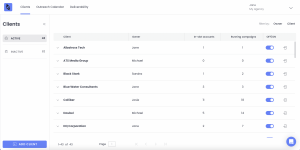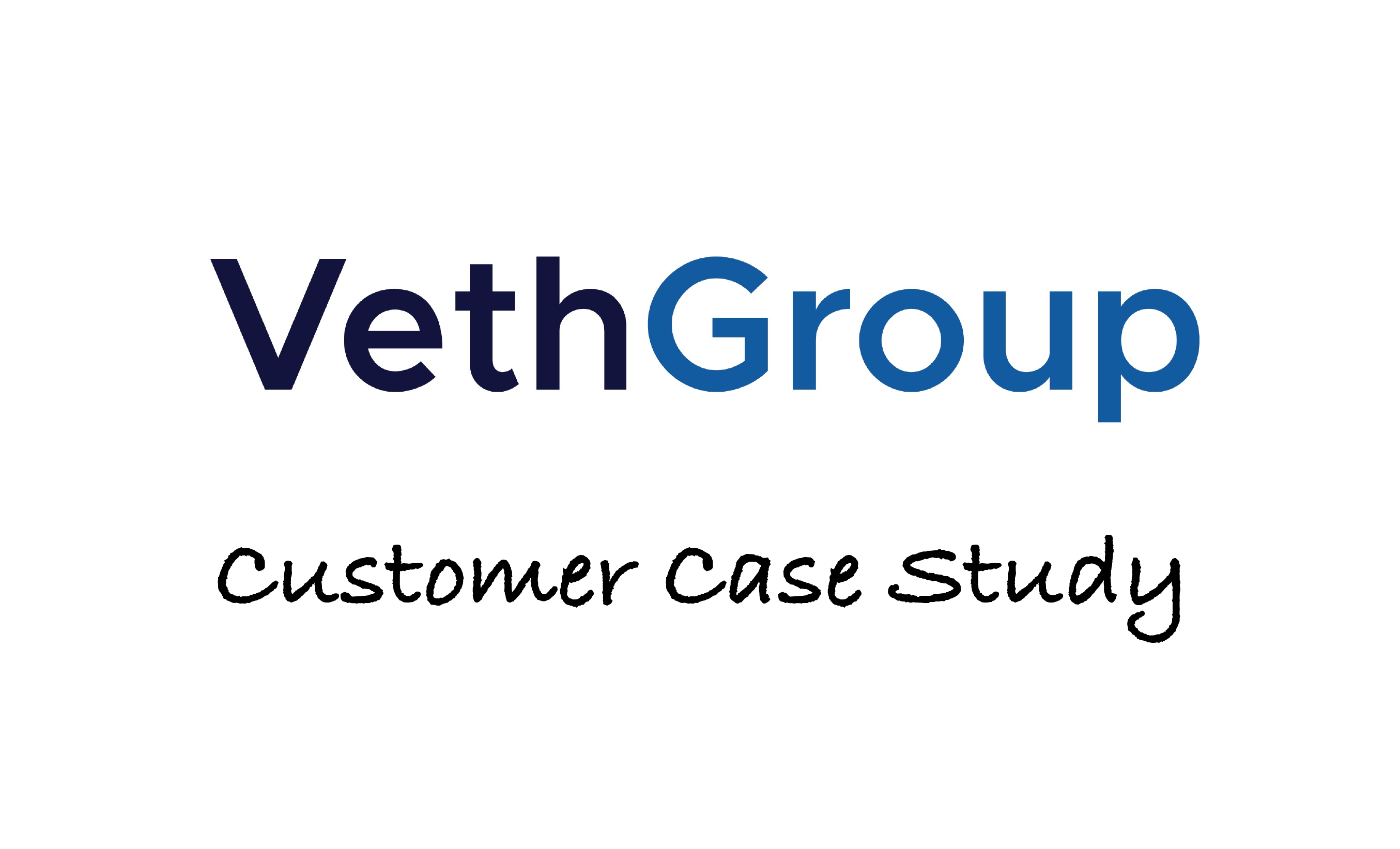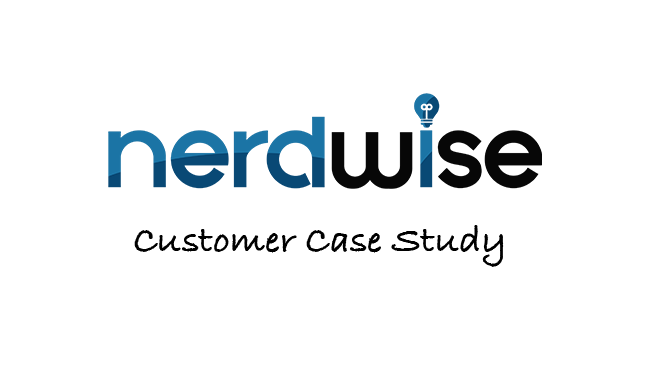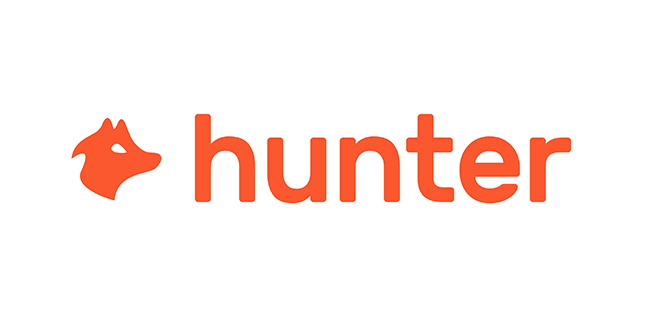You’ve been handling leads either as a sales rep or marketer in a full-time position for a couple of years – at least.
You know many tricks of the trade, but you’ve never done it on your own before.
Venturing off solo might seem scary, so I decided to create these guidelines for you to help you hit the ground running.
I talked to two founders of successful digital agencies – Miles Veth of Veth Group and Patrick Baynes of Nerdwise. They shared what their businesses look like from the inside.
Keep reading to get advice on how to start a lead generation business, along with experience-based insights from two CEOs who’ve been there and done that – and made it.
#1 How to determine who you should target
As tempting as it might be to skip this step and go with the “whoever pays me” route, it might not be the best choice when you’re considering who your ideal client is.
Some agencies do this, and it might work for them to a certain extent.
But just as with any other business, choosing what describes your ideal clients will make your day-to-day easier.
In the case study that we did, Patrick shared that one group that they consider their best clients are these companies that still operate the hard way (cold calling and manually prospecting), but another is strictly industry-based, and includes IT and cybersecurity companies.
So what approach should you take when you’re starting out?
- Local
You can choose to target your local area, which gives you some benefits, e.g. it makes it easier to target your prospects well, and can also be less competitive a market.
You probably know your area pretty well, and have already made some connections with local founders, so it might be a good route to take your first solo steps on.
However, a possible downside of focusing on a specific location is a definite number of clients.
This approach can be very helpful as your first stepping stone. Then you can take on other markets, defined e.g. by industry.
- Industry
Focusing on an industry potentially gives you more opportunities than focusing on local businesses. Which means you can potentially scale your business quicker.
A huge plus of this approach is that once you find out what pain points your target group has, you can use it for all outreach targeted to them, with only small tweaks and personalization for each prospect.
The downside is you’re going to need to do some extra work if you want to identify the best leads.
- Company size
Smaller companies can have tighter budgets. On the other hand, helping companies who still operate the old school way can push them to scale quickly and increase your fee as well.
If you’re not sure what market you should target first, these questions might be helpful:
- How well do you know this market?
- Would it be hard to find leads for that type of client? (How big is their addressable market? How competitive is it?)
- What would be the CPL for this type of client?
- What’s the probability of a lead buying from this client?
If you’re still not sure which market you should go for – try reaching out to both (or several) groups with email and see who resonates with your offer.
You can – and should – always adjust your approach as you go.
#2 How to get your first clients
Your acquisition process will get more advanced as you take on more and more clients and grow your agency, but here’s how fresh agencies usually start off:
- Referrals
I’ve heard many founding stories that begin with the founders getting the first clients from referrals.
If you’ve networked while still working for someone else, this can pay off when you start an agency. So if that’s your case – you can probably get your first clients via the good old grapevine.
- Social media
For some agencies first clients come from social media. That was the case for Veth Group, who started getting traction after posting on LinkedIn about the marketing experiments they were running.
And that’s pretty good advice – even if you don’t yet have clients and results that you can show off on social media, leverage the platform to network and talk about your strategy; show off your expertise instead.
As a #1 business platform, LinkedIn is a no-brainer as most of b2b relations are built there, but you can try other platforms, depending on where your target clients are.
- Cold email or cold calling
As for Nerdwise, they got their first clients the hard way – door to door and pounding phones, as Patrick puts it.
They made sure, though, to follow a specific process from the very beginning – which allowed them to measure their performance and adjust when the results weren’t good enough.
Let’s be honest – you probably will face a lot of rejection at the beginning, but this test-and-optimize approach will help you to get the ball rolling.
Choosing a tool that allows you to perform A/B tests can be helpful as well:
#3 What pricing model should you choose?
When you actually have clients to charge, you need to decide on what base you’re going to charge them.
These 3 ways are the most commonly used by agencies:
- Flat fee
- Per lead
- Per campaign
The price you set for any of these models will of course depend on how many leads you commit to provide, what their level of qualification is, and what market you choose.
Both Patrick and Miles shared that their agencies charge a flat fee.
#4 How to get leads for your agency clients
All right, when you have the previous steps in place, it’s time to do what your clients pay you for: generate them leads.
I’m sure you’re familiar with some of the most popular channels you can use to find potential customers for your clients:
- Cold email
- Cold calling
- Social outreach (e.g. LinkedIn)
- Facebook Ads
- Google Ads
So which one should you choose at the beginning?
I’d recommend cold email. It’s not a very pricey channel, yet still very effective when done right – which makes it perfect for when you’re just starting on your own.
We’ve collected resources that you might find useful for your agency in our Guide for lead gen agencies – check it out>>
Once you gain traction, include more channels to boost the effectiveness of your campaigns and not depend only on one of them.
That’s why you might want to choose an outreach automation tools that will make it easy for you to include e.g. LinkedIn outreach or cold calling in your campaign flow (just like Woodpecker does with manual tasks, and very soon – with an app built specifically for cold calling).
And while we’re at it – see what tools are essential when you’re starting out.
#5 What tools does an agency need?
Operating smoothly and scaling your agency quickly is possible with tools that are designed to fulfill your businesses’ needs.
The bare minimum you need includes:
- a domain,
- email provider (be mindful of their sending limits)
- a prospecting tool (here are some ideas),
- a CRM or project management tool with time tracking to help with budgeting (like Monday or ClickUp)
- and a cold outreach automation tool.
When you’re choosing an outreach automation tool, be sure to pick one that supports an agency’s workflow.
Best if it has a dashboard dedicated specifically to agencies and is focused on ensuring top deliverability – like Woodpecker.
Here’s what Woodpecker Agency looks like:

It’s a place from where you can control all of your clients’ accounts and their campaigns – one dashboard that allows you to keep track of all that’s going on in your agency.
It allows you to easily move between your clients’ accounts (with a single click).
When a client orders leads one month, but doesn’t the next, you can deactivate their account — but then activate it again when they’re ready to use your services again.
You can be sure their data stays safe, and won’t get mixed up between accounts.
If you’d like to see if Woodpecker Agency fulfills your needs, sign up for a free 7-day trial:
What is lead generation, and why is it important for businesses?
Lead generation is the process of attracting and capturing leads, or potential clients, for a business. It’s crucial because it helps businesses generate new leads, nurture them through the sales funnel, and ultimately convert them into sales qualified leads, thereby driving growth and revenue.
How can a lead generation company enhance a business’s lead generation efforts?
A lead generation company specializes in generating leads through various strategies, including digital marketing, social media marketing, and search engine optimization. They can help businesses target the right audience, develop client relationships, and deliver high-quality leads that are more likely to convert into customers.
What are some effective lead generation strategies for businesses?
Effective lead generation strategies include inbound lead generation through content marketing, social media platforms, and search engine marketing. Outbound lead generation, such as cold calling and email marketing, can also be effective. Using lead generation software to automate and manage the process can further enhance efficiency.
How does a lead generation agency qualify leads for businesses?
A lead generation agency qualifies leads by assessing their interest and potential to become customers. This involves using lead capture forms, customer relationship management systems, and lead scoring techniques to identify marketing qualified leads and sales qualified leads.
What role does social media marketing play in lead generation campaigns?
Social media marketing plays a significant role in lead generation campaigns by providing platforms to engage with potential leads, share valuable content, and create targeted landing pages. It helps in capturing leads and nurturing them through the lead generation funnel.
Can starting your own lead generation business be profitable?
Starting your own lead generation business can be profitable, especially if you have expertise in digital marketing, lead capture, and client relationship management. By helping other businesses generate qualified leads and develop effective lead generation strategies, you can create a sustainable generation business.
How do lead generation agencies measure the success of their lead generation campaigns?
Lead generation agencies measure the success of their campaigns by tracking metrics such as the number of new leads generated, conversion rates, and the quality of leads. They also assess the effectiveness of different channels and strategies in capturing and nurturing leads.
What is the difference between inbound and outbound lead generation?
Inbound lead generation focuses on attracting potential leads through content marketing, SEO, and social media, allowing leads to come to the business. Outbound lead generation involves actively reaching out to potential leads through methods like cold calling and direct mail.
How can businesses use lead generation software to improve their lead generation process?
Businesses can use lead generation software to automate aspects of the lead generation process, such as collecting leads from various channels, segmenting leads based on specific criteria, and nurturing leads with automated email sequences. This helps in efficiently managing and qualifying leads.
READ ALSO

Customer Case Study: How Veth Group Sets 1,000 Appointments a Month
Last week I had an insightful conversation with Miles Veth, CEO of Veth Group, one of Woodpecker’s partners. We dug deep into their process of creating effective cold emails, the results the agency gets for their clients, and how Woodpecker fits into their daily workflow.

Customer Case Study: How Nerdwise Helps Their Customers Drive Sales with Woodpecker
This time I’ve talked to Patrick Baynes, CEO & founder of Nerdwise - a digital agency with strong focus on lead generation, and one of Woodpecker’s partners.

Streamline Your Cold Email Outreach: Native Hunter Integration
I'm excited to announce that as of now, Hunter is natively integrated with Woodpecker. So if you'd like to use the two apps to streamline your email outreach, there's no need to do it via Zapier (as you would have up till now). In this article, we’re taking a closer look at Hunter.io, and interviewing Marvin Magusara to find out more about the tool that has been extremely popular around professionals who deal with prospecting. Keep reading to see if Hunter is the right tool to add to your stack and what you could get out of the Woodpecker + Hunter native integration.

